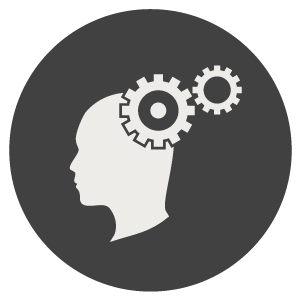
Why Proactive Mental Health?
How can companies and business leaders adopt a proactive approach to the corporate wellness plan? And what exactly are the benefits? What is your company's current policy on supporting mental health in the workplace?
It is known that mental health has a large impact on productivity and absenteeism in the workplace, but so few organizations are seeing the importance of implementing proactive approaches to keep their employees mentally fit.
Proactive vs. Reactive
Often, employers already have ongoing programs to support their sick, injured, and mentally ill employees, such as a drug plan, employee benefits, access to counselling, and sick days. However, the vast majority of the potential benefits lie in programs that actually focus on improving mental WELL-ness, rather than fixing mental ILL-ness.
When we think of the proactive approach, it is typically only met by some type of assessment or training performed in a physical sense. Why is this proactive approach not seen as a valuable ongoing routine that should be performed on our mental health?
How A Proactive Approach Can Help
Research shows that in 2017, one in five Canadians were unable to work every week due to mental health problems or issues. And that in 2011, Canadian employers lost nearly $6 billion in productivity, with 30% attributed to short/long term disability claims related to mental health.
People that are aware and mindful of their mental health are often much happier and are more resilient than those without an awareness to proactively take care of their mental health.
Adopting a proactive approach will help your business with the following:
Employee retention and attraction
Lower absenteeism and lateness
Positive workplace culture
Productivity, performance and creativity will increase
Increased resilience in adverse situations
An overall positive ROI
According to the Mental Health Commission of Canada, adopting best practices to ensure mental health in the workplace becomes standardized. This will result in better productivity, financial growth, mitigate risk and help in employee retention.
Support Mental Health
Here are a couple of proactive approaches leaders can take now to support mental health in the workplace:
What are your employees actually needing? Design an anonymous survey that asks the tough questions.
Would you use counselling services if we hired someone on contract and in-house? A fully confidential service.
Should we implement a “Me” day, where employees can take an additional day or more throughout the work year where there are no questions asked? Because some days, it can be hard just getting out of bed.
Would you take part in a workplace challenge? It could be exercise or mindfulness practices?
Would you like more source material emailed to you that gives you tips and tricks on how to be resilient and strengthen your mental health?
Speak with your HR person. How can you then redesign your plan to incorporate what your employees are actually wanting?

Reach Out to One of Us
The experts at ConsciousWorks will guide you in implementing best practices to a proactive approach through education, strategy & support; leaving you with tools for measured results.



